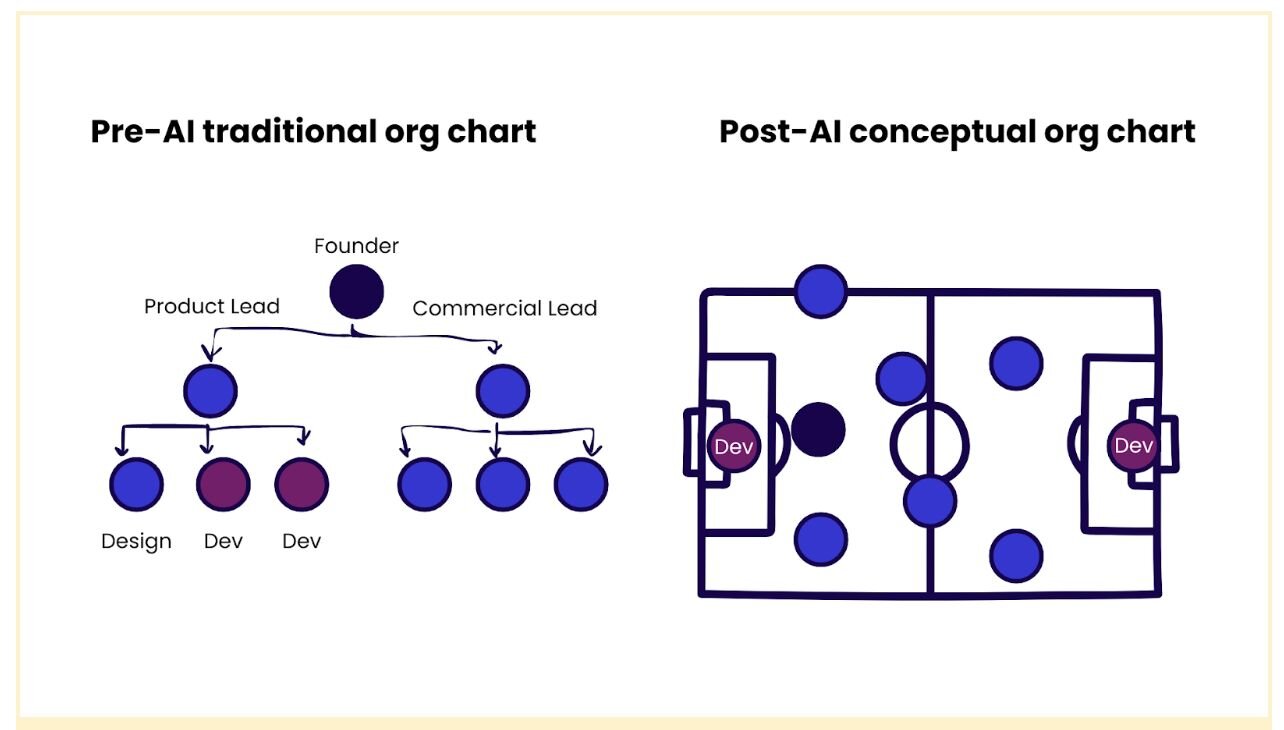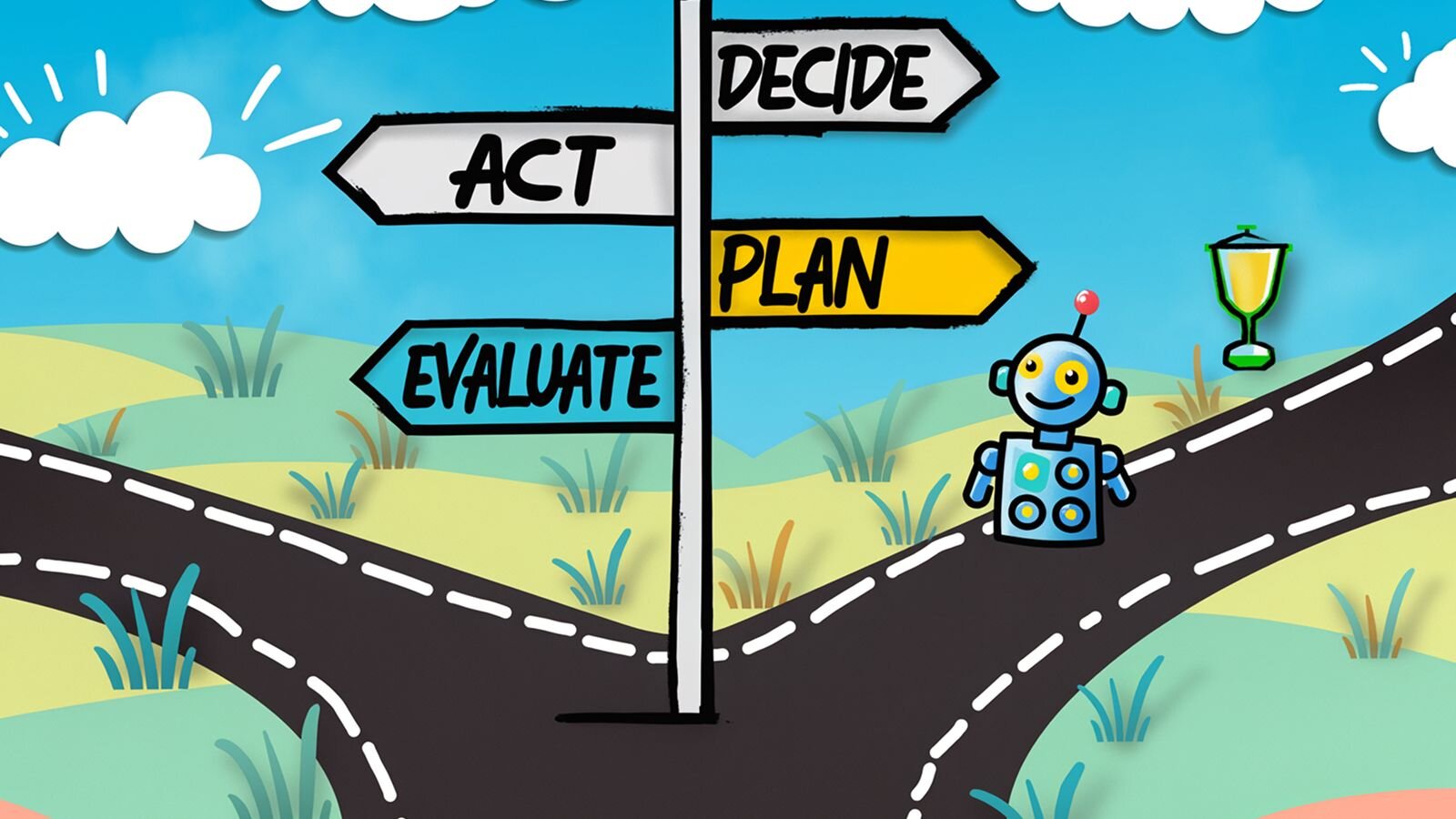In The subtle tactic that undermines candidates. How you ask questions matters.
As a product manager in tech, I've been interviewing for years – both as a candidate and as an employer. One crappy behavior I've seen is asking candidates for free work. It's rarely direct. Instead, interviewers will subtly phrase a question to get free ideas on a real problem they are working on.
I've hated this tactic as both a candidate and as an employer. But lately I've seen more and more people do this. They've become bolder in their asks too. In fact, I feel so strongly about it that I wrote this blog post.
But I don't want to just rant. In my heart I am an optimistic and proactive guy. So I want to help readers like you (anyone looking for a job in tech) recognize this issue and fight back before this becomes an industry norm.
What exactly is free work?
Interview questions should be about your past experiences or an imaginative scenario. Questions should NEVER be about a current scenario the company is facing. Even a seemingly harmless "what's your approach" or "how would structure that problem" is bad.
It's basically asking candidates for free work or free ideas. It is taking advantage of candidates as a source of free, enthusiastic, and independent ideas. Consciously or subconsciously, interviewers are exploiting that source of ideas to make progress in their own job.
Is it illegal? No. There are more important things that should be legal, such as pay transparency and equal pay. And existing laws on those topics should be more strongly enforced too!
Is it unethical? Yes. You are being taken advantage of because you are a candidate. You are giving ideas, structure, and opinions (on real work problems) without being properly compensated.
Don't do free work – not unless you get paid for it.
In today's economy you are selling more than just your labor. You are selling your mind/expertise and your time. Don't sell it for free.
Of course employers should probe for skills they need to do the job. But there is a difference between asking for unpaid help on a real project versus asking behavioral questions on a person's past.
Identify Free Work in the Wild
First you have to be able to recognize this scenario when you interview. Until you've seen it a few times yourself, it is hard to know if you are being asked for free work.
The crux is how the question is phrased:
- Bad: Goes from a specific, relevant scenario and then asks for your theoretical structure/approach or even your specific solution.
- Good: Goes from a generic scenario and asks for a time you solved a scenario like that (or how you would theoretically solve it)
The bad phrasing is specific to this company and is actually closed-ended. The good phrasing is a scenario that one could encounter anywhere and is thus open-ended. Even asking for structure-approach is free work. Structure-approach is what people go to business school to learn.
Here's some examples to make it clear. First, the bad examples:
- "I don't know how familiar you are with our industry, but we have a problem with trying to provide support through 3rd party dealerships, who are also selling our competitors' products. How would you structure your approach to this problem?"
- "Based on your current understanding of our business' strengths and weaknesses, how would you go about creating a marketing plan for this company for the next 6 months?"
- "Write a PRD for a hypothetical problem that our customers are facing."
Here's how the same questions can be rephrased to get to the same core issue but without asking for free work:
- "Describe your experience working with 3rd party partners. What difficulties did you have influencing them and how did you overcome it?"
- "Describe a large marketing plan that you developed for a prior role. What options were there, how do you decide between those options, and how did you adapt it based on the company's strengths and weaknesses?"
- "Write a PRD for a hypothetical problem in another company in the same industry, in a competitor, or in a non-profit."
Aside: Relevance in PRDs for Product Managers
The last set of examples is particularly egregious in product management. PMs are often asked to write a PRD for a homework or verbally during a product sense interview. This is a normal screen for PM skills, just like a coding test or a programming interview for software engineers.
What's problematic is when the prompt is phrased to ask for free work/ideas.
When I was young, I used to like relevance. I saw the prompt was directly related to the company and I got excited. I thought: "If I do well, I might actually get a chance to build this thing!" That was naive.
When I was hired I learned the truth. I didn't work on the thing. Nor did any of the other PMs we hired who did the same homework. The VP eventually became the PM for that project. Did he combine all our ideas? Or was his solution entirely original? Both? I'll never know.
Even after our company released the feature, we still used the same prompt because we were all familiar with the topic and knew what to expect. Conceptually it turned into "Write a PRD for a feature that we already created." Better than free work I guess … but also useless from both sides.
A resourceful candidate would search our help center and find out that we had already launched the feature. Then they would ask us about it. Basically we were all like … "Uhhhh just ignore that and complete the homework like that doesn't exist." Well that was silly. At least finding the help article was one signal of a strong candidate lol.
Prompts could also be "Write a PRD for a feature that we are unlikely to create." Slightly better. But it could very well be something that we could build one day. For example, remixing our tech for a different customer segment or offering an adjacent service to the same segment. Though in reality, prompts like this are actually so esoteric edge cases for very small segments that they were kind of stupid anyway.
How do you deal with unfairness?
In general, how do you handle unfair situations? Not just in interviews, but in work, life, and other situations?
Sometimes you can fight fire with fire. If people are crafty to you then you can be the same to them. It's possible. Sneakiness is a teachable skill. But unless you have prior experience, innate talent, or just a black heart, then it's hard to be sneaky.
For a normal upright and moral person, it's better not to lie or try to lie. Here's my chicken soup advice, and the takeaway from the whole article:
When you face unfair situations in interviews, work, or life in general:
- Identify and protest
- Pose an alternative or walk away
You maintain the high ground, you don't compromise on morals, and you grow in your confidence. Furthermore, the results are basically the same. If the person really wanted you to engage, they will relent. If they don't follow up then they really didn't care about you.
(1) Politely and Firmly Refuse to do Free Work
As soon as you recognize it, politely tell the person about it. Often your interviewers don't realize that they are asking for free work until you tell them. Most people will back off once you politely explain it to them.
From a candidate's point of view, speaking up is hard because you want to be polite, pleasing, and non-confrontational. There's also the power asymmetry of "they are 'giving' you a job." But by politely, directly, and firmly refusing to do something you shouldn't do, you show confidence and backbone. This goes a long way for your confidence and personal success.
Generally only immature interviewers pose the questions in the way for free work. Sometimes they are just too inexperienced to tell the difference. Once you tell them, they understand and will adjust. Most people are like this.
The few black-hearted interviewers are just inherently greedy. Their logic is "Why are we hiring this person if not for help on this project?" But they are taking that idea too far. In essence, it's not viewing candidates as peers or coworkers. It sees candidates more like "companies making a proposal and we are evaluating between different proposals" like RFP in government contracts. That is a very different form of evaluation than interviewing people.
(2.1) Suggest an Alternative: Generalize or New Question
Again, most interviewers will back off if you identify and politely, firmly refuse. But don't stop on a confrontation. Always suggest an alternative.
If you have a similar example from your history, you can generalize the question and then answer with that example.
Instead of directly providing advice on Problem XYZ, do you mind if I talk about a similar situation I had with Problem UVW? I can share my approach and what we actually did to overcome that problem.
Another way is simply refuse and ask for a new question:
Sorry, but I don't feel comfortable giving advice on Problem XYZ because it feels like I am giving free advice on a real problem. It's crossing the line to be an unpaid consultant. Do you have another question that I can answer instead?
The vast majority of interviewers will understand, relent, and change. The ones who press and refuse to budge are the a**holes. You don't want to work with them.
(2.2) Suggest an Alternative: Be a Paid Consultant
Another thing you can offer is simply:
"Would you like me to work as a paid consultant instead?"
Then you can answer any question they want with absolutely no problem at all. But now it is no longer free work because they are actually paying you.
Most will balk at this idea. "I thought you were applying for a salaried role?" Then they will change the subject. But smart managers, or those who have hired consultants or contractors will consider this as a future option.
They know that this is cheaper (in the short term at least) than hiring a salaried person. Contract-to-hire is also the best way to know how someone will actually perform in real life without the noise/pressure of an interview.
In conclusion
Don't get sucked into doing free work. Your time and your effort is more valuable than you think.
First, don't be afraid to speak up when it happens to you. Tell the interviewer about it. Email the recruiter later. Complain on Glassdoor. Awareness is the first step in problem resolution.
Second, pose an alternative or walk away. Most people will apologize and back off. Forgive them and continue. Those who press the issue aren't people you want to work with anyway. Vote with your feet and walk away.







